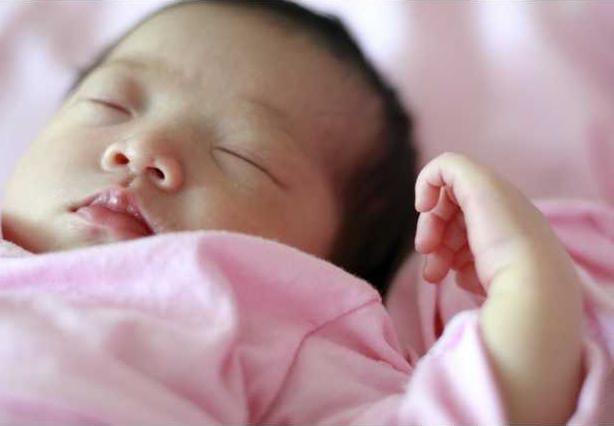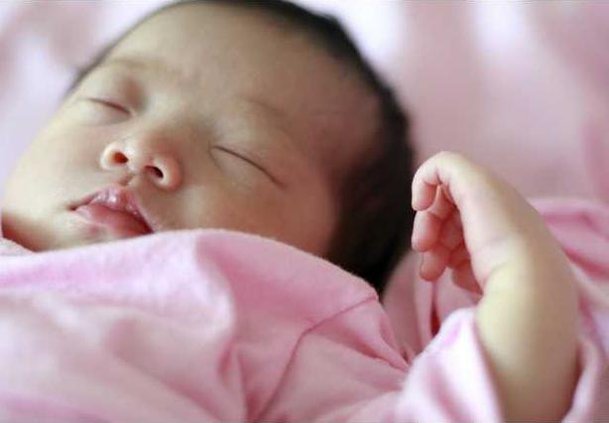Get this there was a 3-week-old girl who was born pregnant with two fetuses.
According to ABC News, the baby girl, born in Hong Kong, had a condition called fetus in fetu, where an undeveloped fetus grows inside the womb of another baby (its twin). This happened back in 2010, but was recently unveiled in a study from the Hong Kong Medical Journal, which said this condition affects 1 in 500,000 births.
Doctors first noticed this after they saw what they thought to be a pair of tumors in the young babys abdomen, according to First to Know. But the tumors turned out to be twin fetuses, each with ribs, limbs and a spine, First to Know reported.
It was almost impossible to detect during the prenatal checkup, as the embryo inside the baby was too small, said Dr. Yu Kai-man, a specialists at Queen Elizabeth Hospital in Hong Kong, where the tests were done. Since it is impossible for the little girl to have conceived the pregnancy on her own, the fertilization of the twin fetuses, of course, belongs to her parents, which has gone to the wrong place.
The girl, according to the study, was released eight days after the doctors removed the fetuses.
According to UPI, Yu, the doctor who helped write the study, said the condition is classified by the World Health Organization as a form of cancer, even though the cause remains unknown.
Better ultrasound tests in the early stages of pregnancy will help discover the cause of the condition, Yu said.
According to ABC News, the baby girl, born in Hong Kong, had a condition called fetus in fetu, where an undeveloped fetus grows inside the womb of another baby (its twin). This happened back in 2010, but was recently unveiled in a study from the Hong Kong Medical Journal, which said this condition affects 1 in 500,000 births.
Doctors first noticed this after they saw what they thought to be a pair of tumors in the young babys abdomen, according to First to Know. But the tumors turned out to be twin fetuses, each with ribs, limbs and a spine, First to Know reported.
It was almost impossible to detect during the prenatal checkup, as the embryo inside the baby was too small, said Dr. Yu Kai-man, a specialists at Queen Elizabeth Hospital in Hong Kong, where the tests were done. Since it is impossible for the little girl to have conceived the pregnancy on her own, the fertilization of the twin fetuses, of course, belongs to her parents, which has gone to the wrong place.
The girl, according to the study, was released eight days after the doctors removed the fetuses.
According to UPI, Yu, the doctor who helped write the study, said the condition is classified by the World Health Organization as a form of cancer, even though the cause remains unknown.
Better ultrasound tests in the early stages of pregnancy will help discover the cause of the condition, Yu said.





